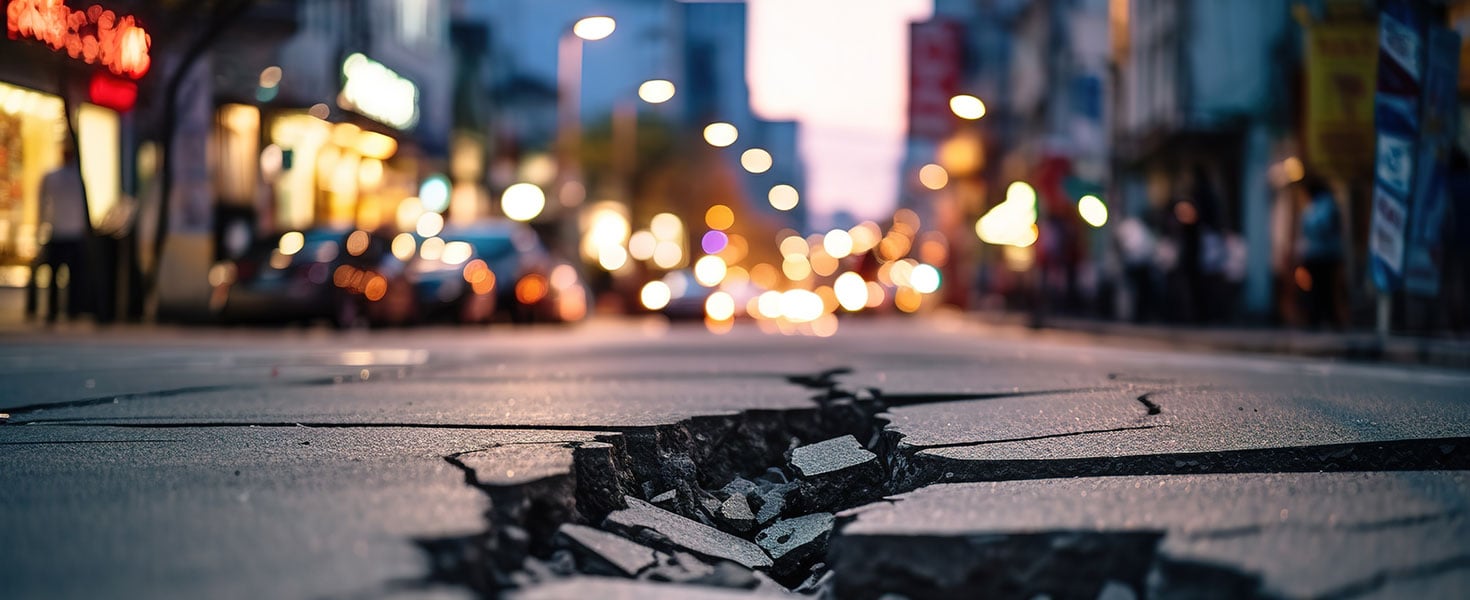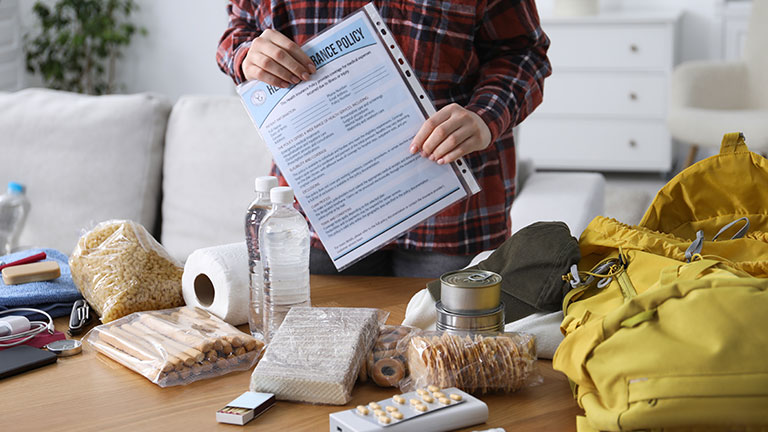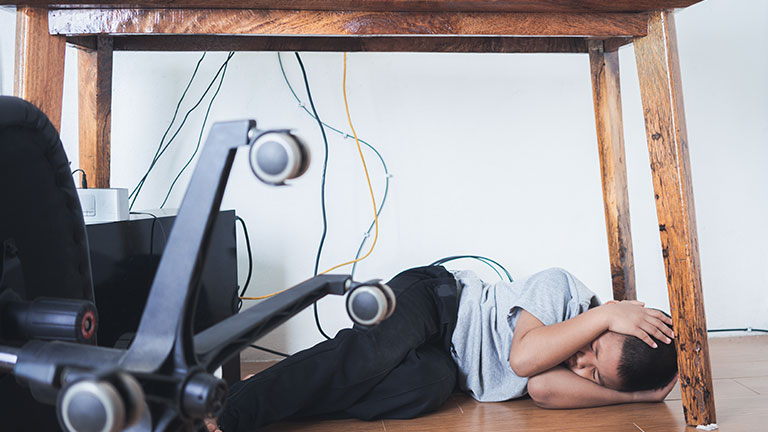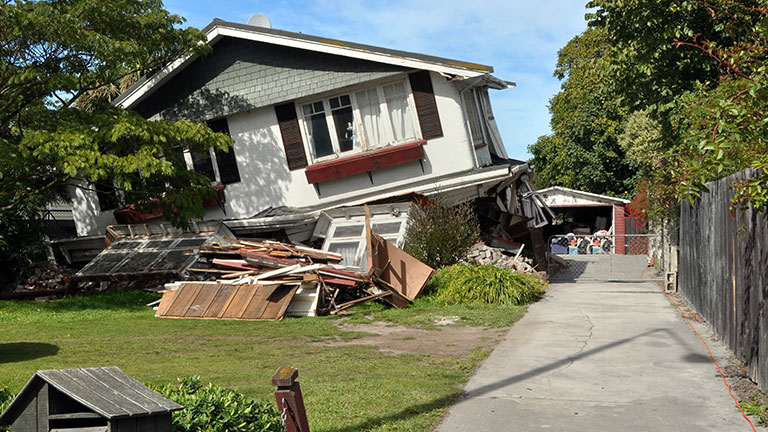How to Prepare for an Earthquake
Most Americans live in an earthquake-prone area. Follow these steps to help protect you and your loved ones

Though the duration of the average earthquake lasts a relatively short time, often feeling like a matter of seconds (depending on the quake’s magnitude), it can be a scary moment with long-lasting repercussions. This is particularly true for those who live in an earthquake-prone area (which is, surprisingly, nearly 75 percent of Americans). That is why it’s best to be prepared at all times.
Here are the steps that you and your family can take before, during, and after a seismic event.

How to prepare before an earthquake
In the aftermath of an earthquake, food and drinking water may not be immediately available, so it’s best to stock up on nonperishable foods and potable (drinkable) water. The CDC recommends storing one gallon of water per day per person for at least three days and up to two weeks, if possible. When it comes to food, storing at least a several-day supply of nonperishable items is advisable, including items that meet special dietary needs.
Another step you can take is to invest in earthquake straps to hold furniture and appliances in place. “People often worry about building collapse, but they are more likely to be injured from falling shelves, televisions, etcetera,” says Scott Brandenberg, a professor of civil and environmental engineering and an expert in geotechnical earthquake engineering at the UCLA Samueli School of Engineering. “Hardware stores sell straps that can be connected to tall furniture and appliances and secured to the wall.”
Brandenberg also recommends putting together an earthquake emergency kit that includes items such as first aid, emergency food and water rations, tools (like pry bars), flashlights, gloves, and crank-operated radios. “I have a number of these kits in my own home and a kit in each of our cars,” he says.
Earthquake insurance may offer some peace of mind and is available to residents in high-risk states such as California, Hawaii, and Alaska. “Whether an insurance policy is ‘worth it’ depends on many factors,” says Brandenberg. “But it is primarily related to a homeowner’s risk tolerance relative to the insurance premiums and coverage.”
“One thing to keep in mind is that rebuilding is often much more expensive after a disaster due to the demand induced by the damage,” adds Brandenberg.

What to do during an earthquake
In the event of a seismic event, people should drop, cover, and hold on, according to ShakeOut.org, a website sponsored by FEMA and the United States Geological Survey. Both advocate for International ShakeOut Day, an earthquake safety practice holidays that happens annually each October—in 2025, October 16. “Trying to move through a building during an earthquake is dangerous and is more likely to cause injury than staying where you are,” says Brandenberg.
One common mistake people make is thinking it’s safer to stand in a doorway or in a triangular shaped part of a house or building. “Often, a clock or painting is affixed above a doorway, and it might fall on your head if you move there,” warns Brandenberg.
The best way to stay safe is to get under a sturdy table or desk and hold onto it. “If you are near a desk or similar structure, you should go under it if it is safe to do so,” he adds.
If you happen to be inside a moving vehicle (depending on your vehicle’s suspension system, you may not even feel an earthquake), the best thing to do is remain inside. “Stop your vehicle safely, and wait for the shaking to stop,” advises Brandenberg. “Getting out of the vehicle may expose you to a traffic hazard.”

What to do after an earthquake
Earthquakes can cause serious damage, including downed power lines, so it may be difficult to communicate with family members and loved ones in the moments that follow. Pick a safe meeting space for everyone ahead of time. “Cell phones may not work, and having a plan that everyone agrees to upfront is important,” says Brandenberg.
Afterward, return home only when it’s safe to do so. Large earthquakes are often followed by aftershocks, which not only feel scary but warrant caution. “If you see damage to your structure, it is better to not go in until an engineer can evaluate its safety.” says Brandenberg.
A little preparation now can go a long way in helping you stay safe in a seismic event.
